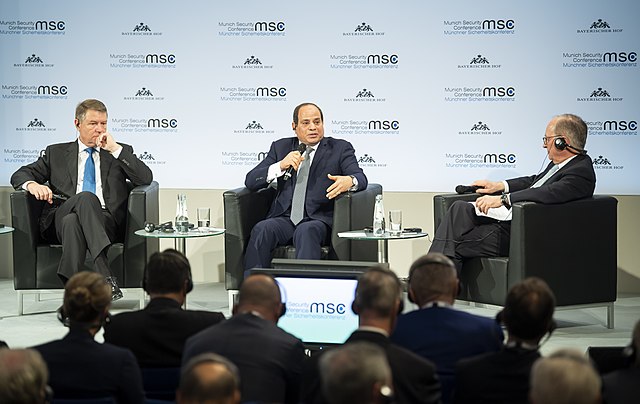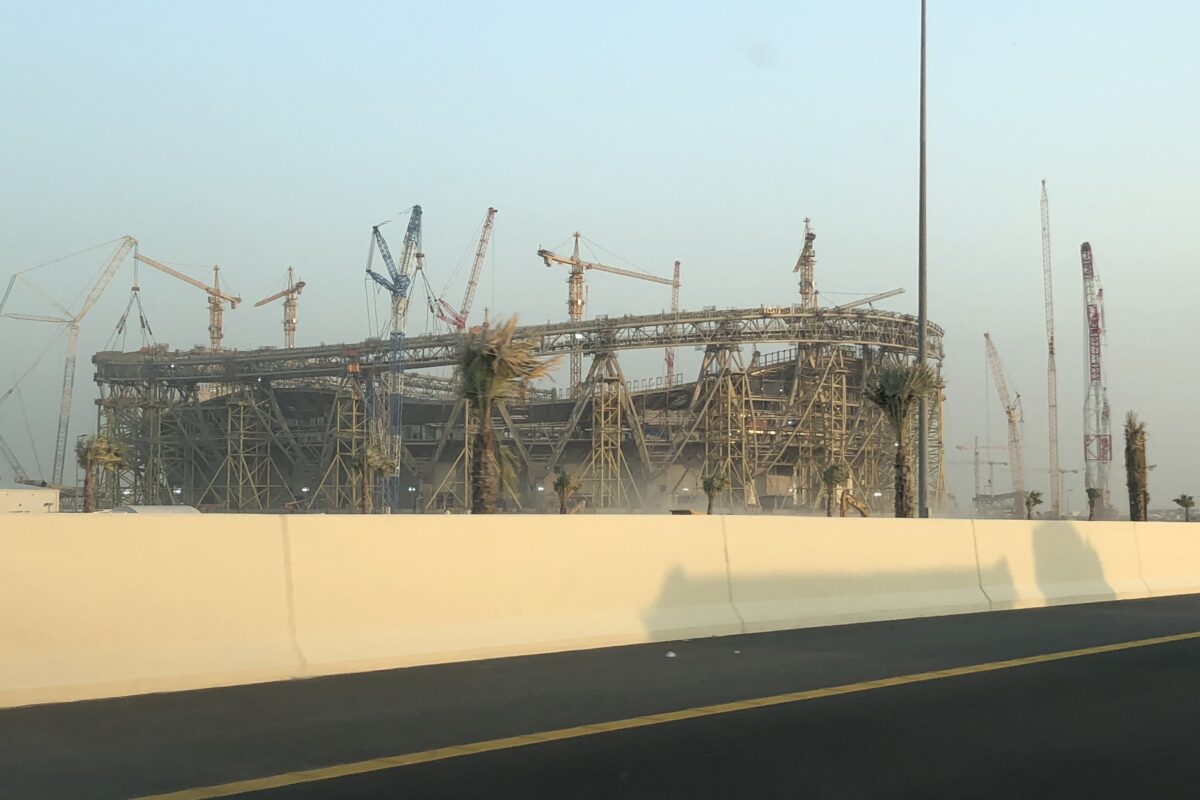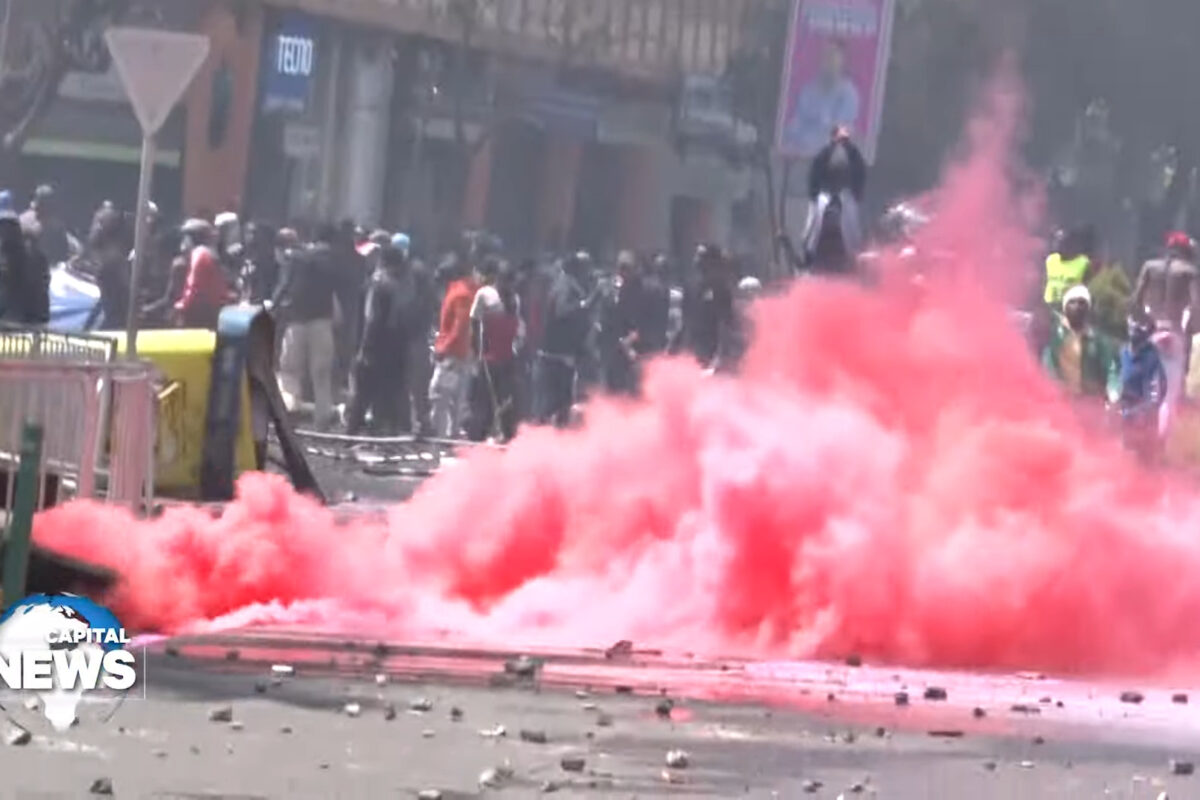At the beginning of July, the German news agency Tagesschau reported under the headline “Power apparatus of Egypt’s President Sisi is getting stronger” about the political and economic situation in Egypt ten years since the reign of military strongman Abdel Fattah el-Sisi began.
The report explains that Sisi’s so-called “stability” is only possible through the oppression of all political opponents. The Tagesschau shows that in the political landscape any opposition has been and is actively being suppressed. The Muslim Brotherhood has been hit hardest, but leftists and other oppositional figures are also being imprisoned, tortured or forced into exile.
In 2021, Egypt was the largest arms buyer from Germany… armaments exports from Germany to Egypt were worth more than 4,3 billion euros.
In the segment, Tagesschau interviews an MP from the party “Future of the Nation” (Hizb Mustaqbal Watan), Sisi’s political front. The MP utters state propaganda upholding the narrative that without Sisi Egypt would be in chaos and there would be “terrorists” running around everywhere. However, interviews with members of the opposition or people on the street would sound more like: “Abdel Fattah el-Sisi rules with an iron fist.” Not only the suppression of any political opposition through arrests, censorship, lack of free elections or the ban on demonstrations causes sharp criticism, the intensifying economic situation has led to more and more resentment among the general population. The Egyptian pound has lost more than half of its value in the previous year, inflation in Egypt is rising daily and most Egyptians can no longer afford meat.
However, Tagesschau neglects a central point in its report: Germany’s material role in stabilising the regime.
The German federal government supports the Egyptian dictatorship in various ways. Most central is the role of arms exports. In 2021, Egypt was the largest arms buyer from Germany, at that time under the government of the SPD (Social Democrats) and CDU (Christian Democratic Union). In that year, armaments exports from Germany to Egypt were worth more than 4,3 billion euros.
Germany also delivered arms to Egypt in 2022 under the current government coalition of SPD, Die Grünen (Greens) and FDP (Free Democratic Party). In the same year, the German industrial manufacturing company Siemens signed a deal with the Egyptian regime worth 8,1 billion euros for the construction of high-speed railways – the biggest order in Siemens’ history.
In all, both the German government and German private capital are making substantial profits by collaborating with the Egyptian regime. When Sisi visited Chancellor Olaf Scholz (SPD) in Berlin in the summer of 2022, Scholz emphasized at the joint press conference how pleased he was about economic relations with Egypt.
Scholz also pointed out why the close relationship between Egypt and Germany is so important and stated:
“With a look to the Middle East peace process, in which, as is well known, we [the German and Egyptian states] have been working together for a two-state solution for a long time, we traditionally coordinate closely. Egypt plays a prominent role in this process, helping to stabilize the situation in the Gaza Strip. I would like to thank you [Sisi] for that too.”
In plain language this means: the role of the Egyptian state in oppressing the Palestinians and stabilizing the Zionist state is very useful for the geopolitical and economic imperialist interests of Germany and the West in general.
In addition, the European Union paid Egypt 80 million euros in 2022 to better guard its borders on land and water with the purpose of preventing refugees from fleeing over its borders.
While the EU drowns refugees in the Mediterranean sea, lets them starve in torture camps in Libya, or deports them from Germany to war zones, or beats and kills them with police violence and barbed wire in Croatia, Poland or Hungary, another pillar of the EU’s murderous “closed-border” strategy is financing the Egyptian regime.
From time to time, the German government may complain that there are human rights violations in Egypt; however, these “concerns” serve merely as pretext to maintain the economic and political interests of the German state and German capital in Egypt – be it through arms exports, economic deals, stabilizing the Zionist settler colonial state or “containing” refugees. This is the foundation of Germany’s cooperation with Egypt. “Stability”, at any price, is the highest priority.
Any German media report on ten years of the Sisi regime is incomplete if the role of Germany and the EU in maintaining said military dictatorship is not examined.




